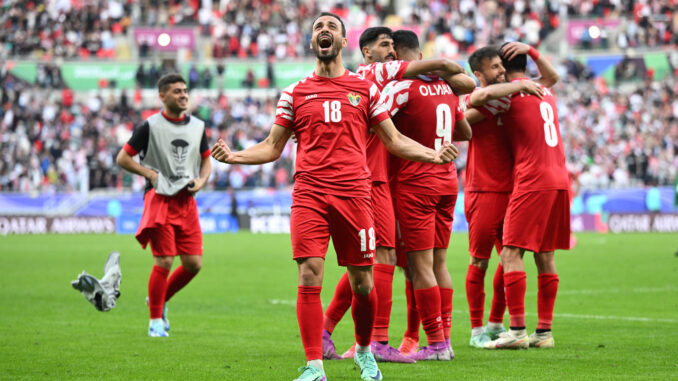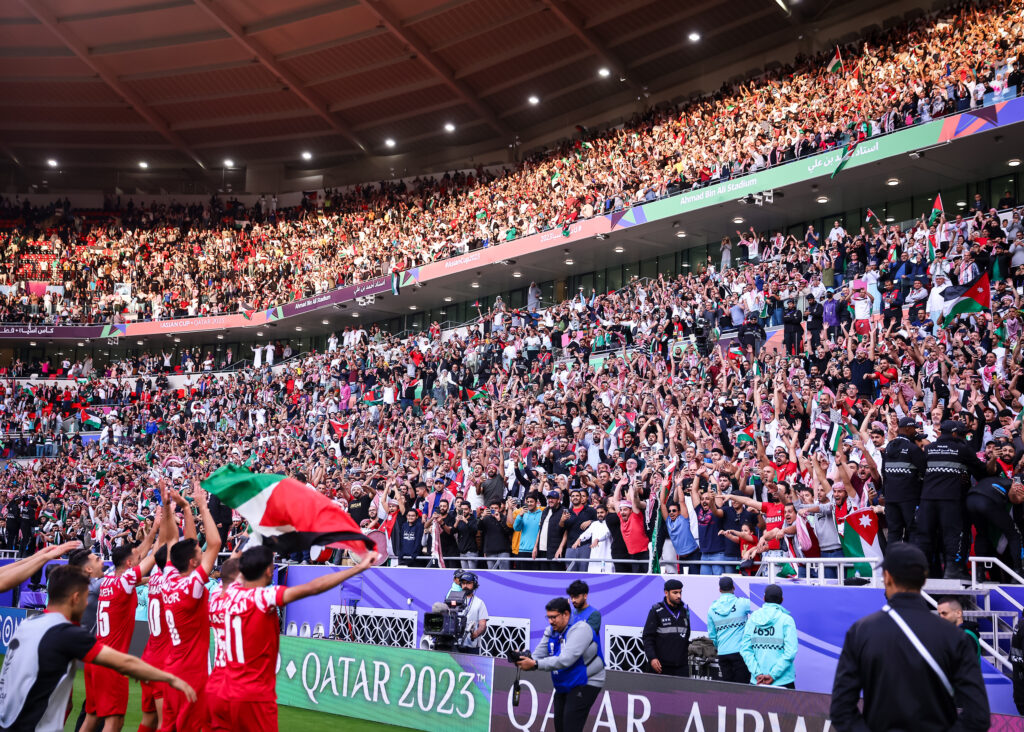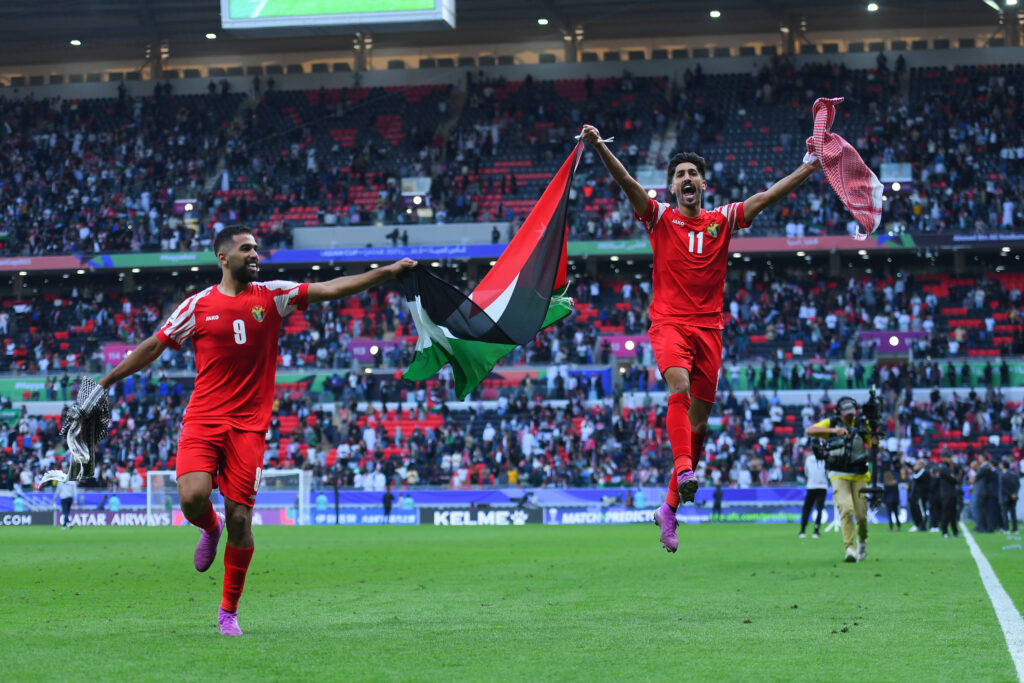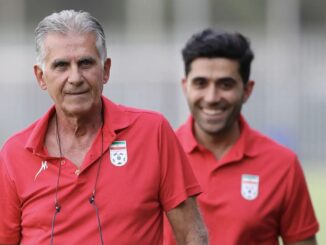
One of the first times I visited Jordan, I was sat at a barbers’ shop on the edge of the Amman New Camp, a refugee camp known locally as ‘Wehdat,’ having had the place recommended by some locals I met nearby.
Many of them were wearing football shirts, from the city, the country and far beyond in an area that has more than 60,000 Palestinian refugees crammed in a space that’s less than one square kilometre.
Right on the edge of the camp is the King Abdullah II stadium, home to the nation’s most popular club side, Al Wehdat.
It was in that direction that I unexpectedly had to chase down one teenager who swiped my camera from the floor mid-haircut, but with the assistance of the barber and a couple of other folks in the street, the camera was returned, apologies issued and accepted and later that evening I set off to take in an Al Wehdat match.
Traditionally, Al Wehdat has been regarded as the team of the sizeable Palestinian refugee community inside Jordan (a number totalling more than two million) while their fierce rivals Al Faisaly are more closely followed and aligned by ‘native’ Jordanians and supporters of the monarchy.
Between them the pair has won 52 of the 70 Jordanian league titles and all bar three of the past 40 editions of the domestic championship in a spell of almost unprecedented dominance.

It’s little surprise then that between them Al Wehdat and Al Faisaly comprise almost half of the national team at the AFC Asian Cup, and with reports that the Al-Faisaly ultras are set to send large numbers to the semi-final clash against Korea Republic, all the factions of Jordanian football are uniting under one banner as the Nashama look to continue their historic run at the tournament.
Into the last four for the first time, Jordan’s stunning progress has prompted huge street gatherings back home as well as amongst the almost 70,000 expatriate population in Qatar, and has seen the team’s achievements praised by the Prime Minister Bisher Khasawneh on social media and highlighted by other members of parliament.
At a tournament that’s been full of upsets and surprises there’s no reason why Jordan can’t believe that they can go all the way and win what would be a first title at any tournament since a pair of Arab Games Gold medals late last century.
Suspensions to a pair of regular starters in central defender Salem Al-Ajalin and forward Ali Olwan don’t help though, while the nation’s record goalscorer, Hamza Al-Dardour was sent home last week after a touchline altercation with the team’s Moroccan coach Hussein Ammouta.
Midfielder Nizar Al-Rashdan, scorer of that stunning late winner against Iraq in the Round of 16, returns from suspension in a boost and all 11 million Jordanians will be hoping a minor knock for star forward Mousa Al-Taamari, won’t keep him from starting.

“We will certainly miss the players who can’t play in the semi-final,” Ammouta said during his pre-match press conference.
“They were part of the core players in the Jordan team but we have players who can step into these roles. We will need to make some sacrifices and the players know that they are required to make big decisions when they step onto the field.
“Mousa Al-Taamari will be ready. He is a key player and we rely on him. However, it’s not just Mousa’s effort that we need, we require contributions from everyone.”
With Ammouta only appointed midway through last year with a remit to regenerate and rebuild the squad, almost nobody tipped Jordan to make these kind of waves in Qatar; the kind that saw them hold their semi-final foes Korea to a 2-2 draw in the group stage, then win a knockout stage match for the first time at an Asian Cup and now reach the last four for the first time.
Having slowly and steadily checked off all those boxes and with a massive backing, swelled by the Al-Faisaly ultras, Jordan are now on the verge of creating even more history.
Photos: Asian Football Confederation
Listen to The Asian Game Podcast as we preview the semi-finals of the AFC Asian Cup 2023




